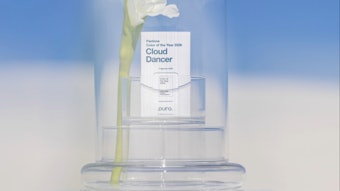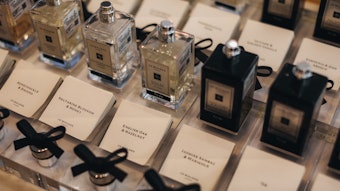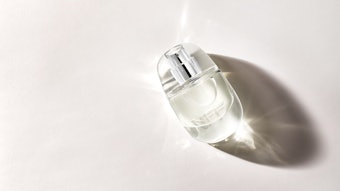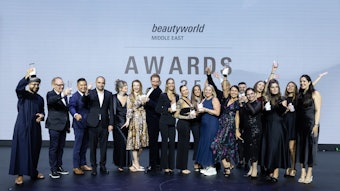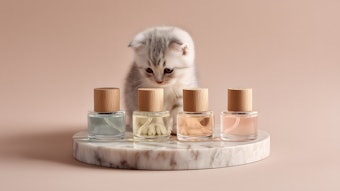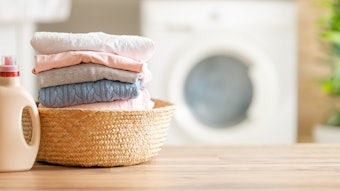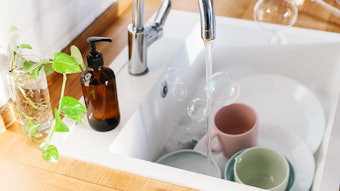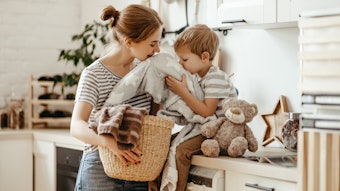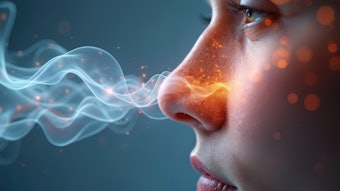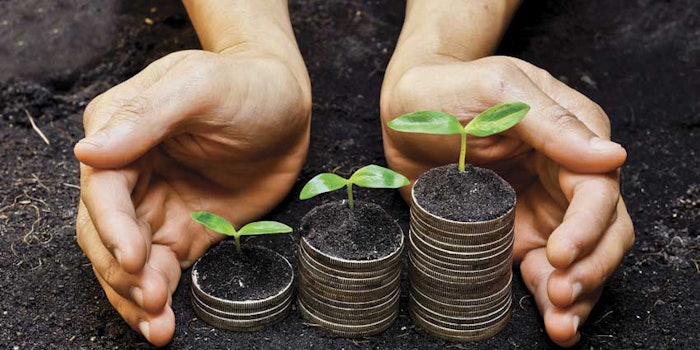
Trendincite’s “Forward Thinking: Sustain to Gain” article, which appeared in the July 2012 issue of Perfumer & Flavorist magazine, examined eco-friendly packaging and better business practices that addressed sustainability. Five years later, sustainable products, services and business practices are strong and gaining traction and visibility. Recycled plastic bottle initiatives and technology, eco-friendly fashion, environmentally conscious laundry products, sustainably sourced ingredients and byproducts created from waste are a few of the latest introductions to address sustainability.
Consumer Attitudes
Consumers’ interest in and attitudes towards sustainability and consumer packaged goods has been captured by market research firms. For example, Canadean’s research showed that 51% of consumers globally say their beauty and grooming product choices are often or always influenced by how environmentally friendly/socially responsible the brand is. According to a Unilever study of 20,000 adults across five countries – UK, US, Brazil, Turkey and India, sustainability is driving purchase behavior.
The study reported that 53% of shoppers in the UK, 78% in the US, 88% in India and 85% in both Brazil and Turkey say they feel better when they buy products that are sustainably produced. Furthermore, 21% of all respondents say they would choose a brand based on the belief that it was produced sustainably. According to a December 2016 Forbes article, “consumers have already weighed in [on sustainability] and are making their food decisions based on where, how and by whom their foods are made, grown, raised.”
Recyclable Plastic Packaging
Waste produced by plastic bottles is a huge environmental concern because of its negative impact on the environment. According to an Ellen MacArthur Foundation (EMF) 2016 report, 95% of plastic packaging material value, or $80—120 billion annually, is lost to the economy after a short first use. Just 14% of the world’s plastic packaging ends up in recycling plants, while 40% goes to landfill sites and a third is found in fragile ecosystems. To address this concern, consumer goods manufacturers have committed to eco-friendly plastic packaging initiatives.
Unilever has committed to 100% recyclable plastic packaging to ensure that it is technically possible for its plastic packaging to be reused or recycled by 2025, while CocaCola joined the ‘New Plastics Economy’ plan and pledged to boost its recycling rate of plastic packaging from 14% to 70% by 2025. CocaCola’s brand Minute Maid recently added three new lemonade flavors: Lemonade with Mint, Spicy Watermelon Lemonade and Peach with Ginger Juice. The beverages are bottled in a 59-ounce PlantBottle package; the company’s first fully recyclable plastic bottle made from up to 30% plant-based material. Crystal Geyser Water Company has relaunched its Tejava tea in 100% BPAfree, PET plastic recyclable bottles and are available in Northern California Costco locations, online at Amazon and in grocery stores throughout the region.
In addition to producing eco-friendly packaging, education is an important factor in recycling. Campbell Soup Company, Church & Dwight, Henkel, Ocean Spray Cranberries, Nestlé Waters North America, PepsiCo, Reckitt Benckiser and Unilever have joined How2Recycle, the US-based standardized labeling system that educates consumers on how to recycle packaging correctly, with onpack recyclability information.
There are also independent sustainable initiatives underway. For example, in response to the plastic bottle waste, product design student Ari Jónsson from the Iceland Academy of the Arts created a biodegradable water bottle made out agar powder from red algae. The nontoxic bottle retains its shape when full of fluid but will start to decompose as soon as it’s empty. As an alternative to plastic, Popzup Popper is an interesting product. It is a patented recyclable and compostable box that is reusable and includes 12 single use large batch pouches of popcorn kernels. The popcorn is made “without chemicals, plastic or silicone” and features a clean label and is formulated with non-GMO ingredients and is gluten-free.
Recyclable plastic packaging is also evident in beauty care. Procter & Gamble (P&G) unveiled the world’s first shampoo bottle made with 25% recycled beach plastic, manually collected by volunteers and NGOs, which scour beaches for waste. In partnership with US recycling company TerraCycle and French waste management company Suez, P&G designed the black Head & Shoulders 2-in-1 Clean Classic shampoo bottle. Similar to other large consumer packaged goods manufacturers, P&G has committed that by the end of 2018, more than half a billion of its bottles per year in Europe will be made of up to 25% post-consumer recycled plastic. This figure is more than 90% of all hair care bottles sold in Europe across the P&G portfolio. Garnier Fructis has repackaged the brand’s entire range of shampoos and conditioners into redesigned PET bottles with 30-50% post-consumer recycled plastic, which use 10% less plastic than the previous bottle design. The Brazilian cosmetics company Boticario Group shifted over 70% of its Cuide-Se Bem range to green polyethylene packaging, which saved over 90 tons of plastics and avoided more than 3,000 tons of carbon emissions per year. In 2016, the brand won the Sustainable Beauty Awards in the sustainable packaging category for this initiative.
In addition to plastic, Unilever has been exploring other sustainable packaging for its brands. Unilever and Ball Corporation collaborated to create a sustainable aerosol can for Rexona and Sure antiperspirant cans. The antiperspirant cans use Ball’s patented ReAl technology to reduce product carbon footprint by 18%. Using CreaSolve Process technology developed in partnership with the Fraunhofer Institute for Process Engineering and Packaging IVV in Germany, Unilever discovered that it is able to separate plastic from sachets, which it can then use to create new sachets.
A Shoe-In, Eco-Sustainable Fashion
As a whole, the fashion industry is not known for ethical manufacturing practices, and sustainable initiatives have been slow. However, there has been recent activity in eco-friendly fashion using recycled materials such as plastic bottles and polyester, as well as plant-based materials.
San Francisco’s Rothy’s, the environmentally-friendly women’s footwear line, was founded by Roth Martin and Stephen Hawthornthwaite, The shoes are made from recycled plastic bottles that have been sterilized and chipped into flakes, which then get added to a filament fiber used for a 3D knitting machine. The shoes can be washed in the washing machine, and once the shoes reach the end of their life cycle they can be returned to Rothy’s to be recycled. Adidas and the Parley for the Oceans initiative launched three new tennis shoe designs, all made from ocean plastic waste. The UltraBoost tennis shoes on average use 11 plastic bottles retrieved from the ocean. The Adidas X Parley are made with a knitted fabric comprised of 95% recycled plastic from the ocean. Adidas has also partnered with Mini Rodini and have created the Mini Rodini X Adidas Originals limited edition collection, which uses organic cotton for the tracksuits and recycled polyester for the shoes. Mara & Mine X Candice Swanepoel released a sustainable capsule collection of vegan footwear with proceeds benefiting mothers2mothers, a pediatric AIDS charity. Reebok announced the introduction of its first plant-based footwear line “Cotton and Corn,” which are sneakers crafted entirely from sustainable materials expected to hit the market later this year.
Fashion designer Salvatore Ferragamo has created the Ferragamo Orange Fiber capsule collection for Spring/Summer 2017, which consists of shirts, dresses, trousers and scarves with printed motifs designed by architect Mario Trimarchi. The ecological collection is manufactured using squeezed orange residue in partnership with Orange Fiber, an eco-sustainable fabrics company. Gap committed to obtain 100% of its cotton from more sustainable sources by 2021 and by 2020, 80% of Athleta’s apparel materials will be made with sustainable fibers. In 2016, seven million plastic bottles were used in Athleta’s recycled polyester. Evrnu makes fiber from cotton garment waste that uses 98% less water and 90% less carbon emissions than cotton and polyester respectively. Stacy Flynn, the founder, describes the material as “finer than silk but stronger than cotton.”a
Eco Laundry
According to a June 2016 Guardian article, new studies show that tiny fibers from synthetic fabrics are making their way from washing machines to shorelines where waste water is released. The concern is that these fibers are poisoning our waterways and food chain.
To protect the ocean environment, Cora Ball is a microfiber catching laundry ball that “like coral, allows water to flow, while picking up those little pieces of microfiber and catching them in their stalks.” The product launched a Kickstarter campaign in March 2017 with a $10,000 goal and the company successfully garnered $353,461 with 8,635 backers. Crystal Wash is an eco-friendly Bio Ceramics technology that uses various minerals with effective antibacterial and anti-oxidant properties. It is said to “naturally clean your clothes as effectively as laundry detergent and it is better for your skin, the environment and more gentle on your fabrics.” According to the company, the technology will last for up to 1,000 loads of laundry and each 30 days or laundry loads, the Crystal Wash should be placed in the sun for an afternoon to recharge.
Sustainably Sourced
Sustainably sourced ingredients are becoming increasingly important for both manufacturers and consumers across a variety of industries including fragrance and flavor.
Firmenich received a gold rating from EcoVadis for the third consecutive year and was recognized as the leader in the Fragrance and Flavor industry and was among the top 1% of all 30,000 suppliers assessed. Chopard has launched a new range of four unisex scents: Néroli, Vétiver, Magnolia and Vanille, each containing sustainable ingredients. The fragrances were developed in collaboration with Firmenich and each scent is based around a fair trade ingredient.
In coordination with a new prize fund, by which Lush is looking to support projects working towards environmental and social regeneration, Lush debuted a Luxury Gourmet soap collection. “Using a new, inhouse, patent-pending technique to create the petrochemical and palm oil-free soap base, each is made using oils from sources that are contributing to environmental and social regeneration in their region,” states the brand. L’Oreal has partnered with Bolivian growers for the sustainable sourcing of quinoa husk. This quinoa husk used as an exfoliating ingredient in the brand’s skin care products, earned the L’Oreal Group the sustainable ingredient category award from the 2016 Sustainable Beauty Awards. L’Oréal’s brand Biolage R.A.W. nourish shampoo and conditioner earned a silver certification and platinum certification from MBDC, a third-party certifying body for environmental and social responsibility. California Beard Company produces handmade men’s grooming products with organic and natural ingredients in recyclable packaging. The Beard Combs are made of sustainable bamboo and for every product sold, the company plants one tree. As of June 1, 2017, the company has planted over 2,500 trees, notes founder Chandler Sterling.
On the flavor side, Unilever is committed to sustainably sourcing its raw materials. At the end of 2016, 51% of Unilever’s agricultural raw materials were sustainably sourced, which included 48% physical sustainable sources and 3% in the form of certificates used mainly in soy and sugar. In beverages, top beverage firms Döhler, FrieslandCampina Riedel, Refresco and Verbruggen Juice Trading Sustainable Products have signed an agreement to supply 100% sustainable juice and puree by 2030. The companies have committed to having 15% of its volume sourced sustainably in 2018, rising to 30% in 2020, 75% in 2025 and 100% in 2030. Blue Evolution is a food brand based on premium, sustainably grown, harvested and processed North American seaweed that shifts our dependence on freshwater for food production and de-acidifies the ocean. Currently, the brand offers Penne pasta, Rotini pasta, Shells & Cheese, Gluten Free Shells & Cheese and a Classic Marinara Seasoning Blend all made with “superfood seaweed” and packaged in a compostable box.
Byproducts Create New Products
In October 2016, Trendincite’s “Forward Thinking Waste Not, Want Not,” explored food waste management and reduction with food waste initiatives, consumers’ behavior, zero-waste grocers and restaurants and the sale of “ugly” produce. Byproducts created from waste are an important aspect of sustainability and there have been a variety of unique initiatives and new products introduced.
The New Zealand vodka brand, 42 Below—which is part of the Bacardi portfolio—launched a recycling initiative that converts old cocktail lemons into soap to create 42 Below Recycled Cocktail Lemons Eco Soap. The soap is made from lemons collected from bars in Australia and New Zealand that have signed up to be part of the program. The lemons are formulated into a liquid soap and then sent back to the bars free of charge. It was reported that over the course of stwo months that the company created 400 bottles of liquid soap crafted from fruit waste of 3,200 cocktails. Clean the World is a social enterprise that collects, recycles and distributes discarded soap and plastic amenity bottles from more than 4,000 hotels and resorts. After the company has sterilized the soaps and created new soaps, they are distributed to children and families in countries with a high death rate due to acute respiratory infection (pneumonia) and diarrheal diseases (cholera). Clean the World has distributed more than 40 million bars of soap in 100 countries.
ChicP, UK based start-up, uses a surplus of leftover fruit and vegetables to create a variety of flavored hummus. The dips come in five flavors: Banana, Avocado and Cacao; Banana, Peanut Butter and Cocoa; Beetroot, Horseradish and Sage; Carrot, Ginger and Turmeric; and Herby.
The Air Liquide CO2 recoveryplant in Australia is the first facility to capture and sell CO2 from a power station in Australia. It will capture and purify up to 50,000 tonnes of CO2 emissions from the power station’s exhaust per year. The waste carbon dioxide from the power plant is a local source of CO2 for South Australian industries, such as growing tomatoes and carbonating drinks. Del Monte Philippines Inc. (DMPI) and Global Water Engineering (GWE) have partnered to create renewable energy from pineapple waste. New Zealand’s DB Breweries company created beer bottle crushing machines that turn empty recycled beer bottles into sand to help save local beaches.
Designer Nienke Hoogvliet has collaborated with the Dutch Water Authorities to produce a range of homeware products that is created from wastewater, while Rotterdam-based Studio Roosegaarde created the Smog Free Project and created the Smog Free Tower, an oversized 23 feet tall vacuum cleaner. The carbon of smog that is collected is compressed for thirty minutes and then designed into smog free rings. The company is working on smog free bicycles that suck up the polluted air, clean it and then release the clean air. The program started in China, with intentions of rolling it out in India and possibly other countries in the future.
A Sustainable Future
Sustainability is a broad subject that affects all industries. It encompasses manufacturers’ green business practices in the creation of products and services and the interaction of consumers and their behavior with the products and services produced. There has been an ongoing concern about the growing population and the world’s consumption habits coupled with limited resources.
To address our growing population, manufacturers and consumers are becoming more socially and environmentally conscious of the world’s resources and have been evaluating and changing their production and consumption habits. As technology advances, new initiatives will develop and our society will continue to adopt responsible practices toward the sourcing and manufacturing of products and services to minimize the impact on the environment.

